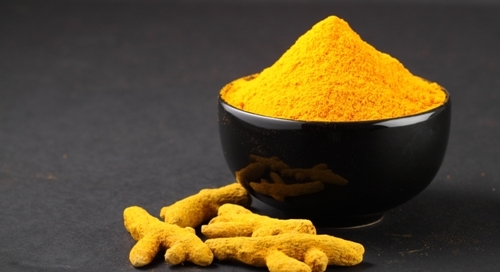Turmeric: the Health Benefits of a Spicy Life
by Nusheen Orandi
What if adding only a fraction of a teaspoon of something to your cooking could prevent and treat Alzheimer’s disease while also having anti-cancer, antioxidant, and anti-inflammatory properties? This is no magical drug, but a spice that comes in a delectable shade of orange in your local grocery store. Turmeric, that is.
Turmeric, a powder derived from grinding up dried rhizomes (roots) of the turmeric plant, is a widely used spice in the Indian, Asian, and Middle Eastern cultures. However, research behind turmeric is largely aimed at curcumin, the most active component of turmeric that makes up 2-5% of it.
Could turmeric (curcumin) be the first treatment for Alzheimer’s disease?
It’s probably not a coincidence that India has one of the lowest rates of Alzheimer’s disease in the world. The relative lack of the disease in India, where turmeric (and thus curcumin) is a commonly consumed spice, has led researchers to conduct epidemiological studies that examine the effect of curcumin. Alzheimer’s is a devastating illness that deteriorates cognitive function. Researchers believe that one of the first pathologies of Alzheimer’s disease is the accumulation of plaques(protein fragments) in the brain. The build up of these plaques can kill nerve cells and produce free radicals that damage nerve cells, which is what leads to Alzheimer’s disease.
Where does curcumin come in? As an anti-inflammatory and antioxidant agent, curcumin could reduce or prevent these plaques from forming, thus preventing the neuronal breakdown that leads to Alzheimer’s disease. This could make a difference to millions of seniors worldwide who are at risk for or fall victim to this disease.
Is “curcumin” also “anti-cancer?”
A possible cure for cancer?
The discovery of this medical Holy Grail has been the dream of physicians and research labs alike. Although curcumin is likely not the whole answer, its anti-tumor properties give hope to the […]


